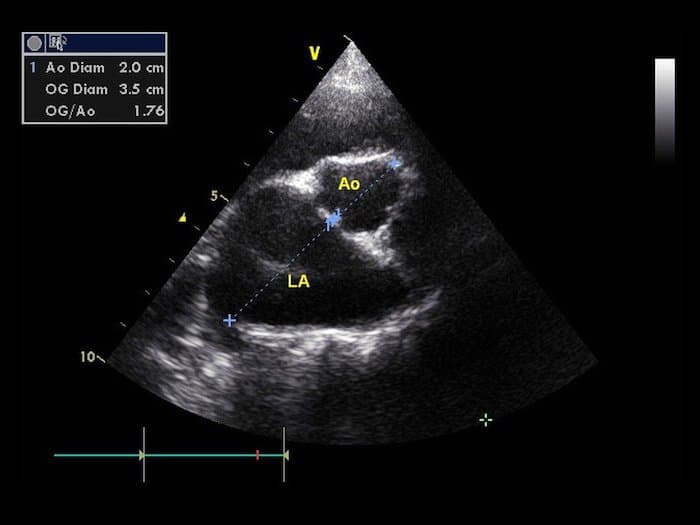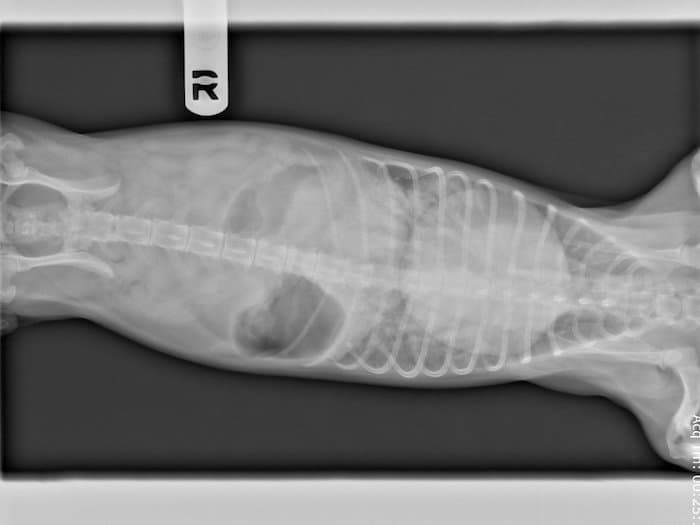Dilated cardiomyopathy (DCM) is a disease that affects the heart of dogs. In this condition, the heart muscle becomes weak and thin, and this makes the heart dilate. DCM is most common in certain large breed dogs and can lead to heart failure. The disease cannot be cured, but there are treatments that can slow the progression and improve quality of life for affected dogs.
Which dogs are most at risk?
DCM is more common in large breed dogs. Predisposed breeds include:
- Doberman Pinscher
- Irish Wolfhound
- Newfoundland
- Great Dane
- Boxer
As well as these larger dogs, DCM is sometimes seen in some medium-sized dogs including spaniels and Portuguese Water Dogs. The causes of DCM are not fully understood, but genetic mutations associated with the disease have been identified in some breeds. Occasionally, DCM can develop due to a deficiency in a particular amino acid called taurine.
What happens in DCM?
In DCM, the heart muscle becomes gradually weaker and thinner, and as a result the heart becomes enlarged and less able to pump blood around the body. The following animations show how the heart normally functions and how it dilates in DCM:
Animation of heart anatomy and blood flow:
Animation dilated cardiomyopathy:
As well as being weaker than normal, the dilated heart may also develop problems with conducting electrical impulses. This means that DCM can also result in heart arrythmias.
Typically, the disease develops for some time before the heart begins to struggle to the extent that dogs show symptoms. Symptoms typically develop in middle-aged dogs, though this is not always the case. In Portuguese Water Dogs, DCM sometimes develops early in life.
What are the symptoms of DCM?
DCM will eventually result in heart failure, and signs of this include weakness, struggling on exercise, rapid breathing and shortness of breath. Sometimes heart failure can cause the abdomen to fill up with fluid, and you may see that your dog's tummy seems large and full.
Signs of DCM may build up over a period of time, but in other situations the disease can progress very rapidly. Some dogs also experience fainting episodes, and sudden death is a possibility due to heart arrythmias.
It is possible that your vet may identify DCM before obvious signs of disease develop. This may happen if they identify a heart murmur or rhythm abnormality at a routine examination, and then perform investigations to diagnose the cause.
How will my vet diagnose DCM?
Your vet may recommend investigation if your dog is showing signs of heart failure, or if they have a heart murmur or a rhythm abnormality. Investigation may include an ultrasound scan to assess the size of the heart chambers and look for any dilation. The following image shows an ultrasound scan of an enlarged heart chamber.
Ultrasound scan of a dog with DCM:

An ECG may also be performed to assess the heart rhythm and diagnose any possible arrythmias. Chest X-rays can also help assess the heart - the following image shows a large and dilated heart.
Radiographs of a dog with DCM:

An addition to these investigations, blood tests may also be advised. These can provide some information on the heart as well as shedding some light on your dog's general health.
How is DCM treated?
While there is no cure for DCM, there are many medications that can support the heart and delay the progression of the disease. The right treatment for your dog will depend on whether they have developed heart failure and whether they have a rhythm abnormality, and your vet will be able to advise on what is best for your pet.
Your vet will also advise you on how best to monitor your pet's symptoms to see if any additional treatment would benefit them as the disease progresses. The prognosis for your dog will depend on how severe their disease is and how well they respond to treatment. Sadly, sudden death is always a possibility with DCM, and this is more often seen in Doberman Pinschers.
Animations ©Medi-Productions
